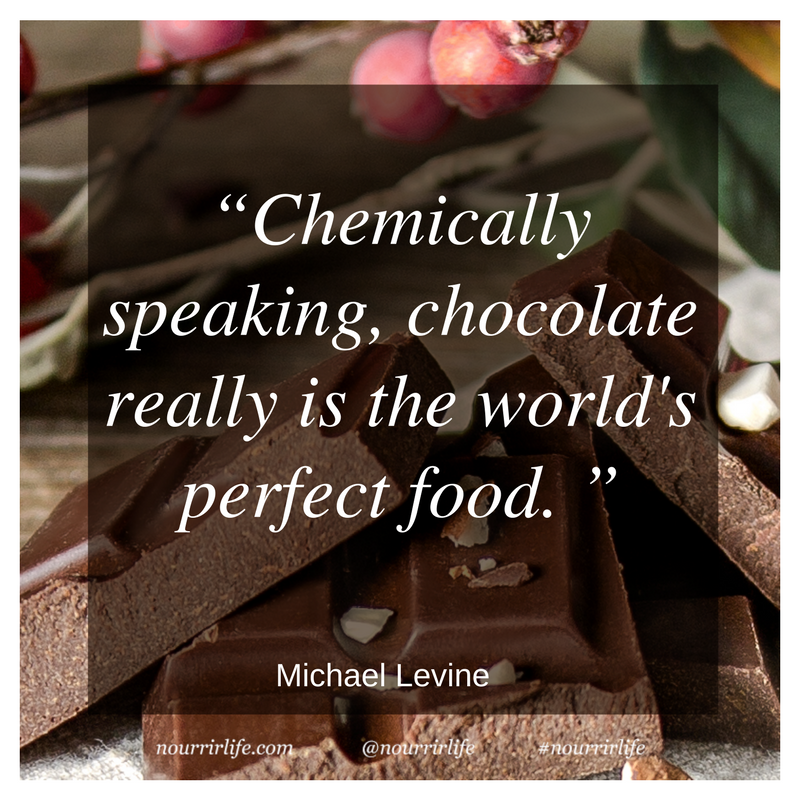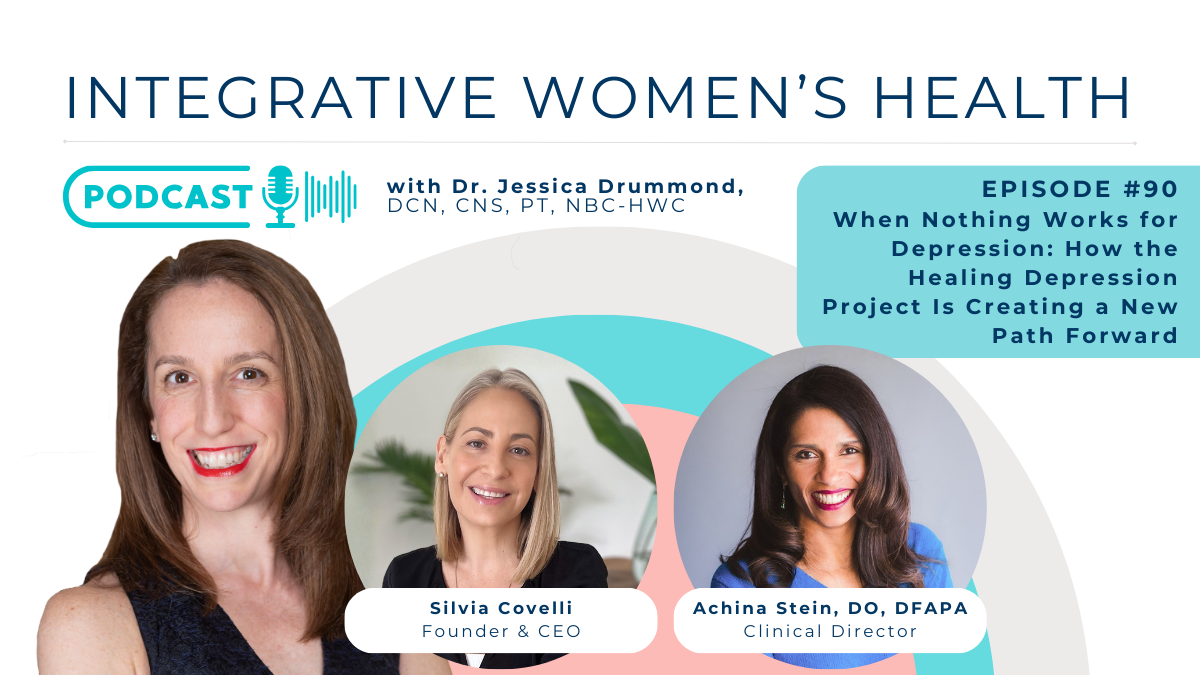
The skin is a window to a woman’s general health. While there are many health benefits of dark chocolate, skin health tops the priority list for many women.
Dark chocolate with collagen, plus an anti-inflammatory nutrition plan, hydration, and sleep are a winning combination for optimizing skin health.
Health Benefits of Dark Chocolate
In my practice the skin health issues that women tend to struggle with include acne related to puberty, perimenopause, or PCOS, and eczema or other rashes related to allergies, sensitivities, and overactivity of the immune system.
To optimize skin health during the hormonal shifts of puberty, perimenopause or PCOS…
- Balance testosterone, estrogen, and progesterone
Sex hormones are broken down in the liver. When the liver breaks these hormones down, into their less active metabolites, they become less harmful – lowering the risk of female cancers, reducing ovarian cysts, and minimizing menstrual-related breast pain and cramping. But, the liver sometimes breaks these hormones down into more active metabolites – increasing the risk of some cancers, PMS related pain, and ovarian cysts.
A recent Spanish study found that the potent antioxidants in dark chocolate reduce post-prandial blood pressure in the liver that is associated with damaged liver blood vessels.(1) In other words, one of the key health benefits of dark chocolate is that it helps the liver to function better to keep hormones balanced.
- Balance blood sugar

Stress resilience is the other big key to sex hormone balance. When women are physically or emotionally stressed, their cortisol and insulin levels swing up and down, working hard to keep blood sugar balanced. Blood sugar balance is an issue of survival. Thus, this is always a physiologic priority.
In people who consume caffeine (in dark chocolate or coffee), adiponectin levels are higher.(2) Adiponectin is a marker of cardiovascular disease and type 2 diabetes risk. It’s a hormone with anti-inflammatory and insulin sensitizing properties, thus higher levels are better.
In those with type 2 diabetes, markers of inflammation and blood sugar instability, including fasting blood sugar, hemoglobin A1c, and hsCRP, all improved in the group that ate dark chocolate compared with those who ate white chocolate.(3)
Low sugar nutrition plans are important in people with blood sugar imbalances. Thus, choosing dark chocolate with very low sugar content is key. Choose a brand with at least 72% cacao or higher.
- Reduce inflammation
Cocoa has the highest flavanol content of any food on a per gram basis. It contains high amounts of the flavonoids (−)-epicatechin (EC), (+)-catechin and their dimers procyanidins B2 (PB2) and B1, and other polyphenols such as quercetin, isoquercitrin (quercetin 3-O-glucoside), quercetin 3-O-arabinose, hyperoside (quercetin 3-O-galactoside), naringenin, luteolin and apigenin have also been found in minor quantities.(4) With the high quantity and variety of antioxidants contained in chocolate, it’s a powerful anti-inflammatory source of nourishment. Less inflammation leads to less redness in the skin and better hormonal balance with reduced physiologic stress.
Health Benefits of Collagen
To optimize gut and immune health to reduce eczema and rashes…
- Heal the lining of the digestive system
The lining of the digestive system is an important barrier to keep pathogens and undigested food particles from irritating the immune system. Collagen protein helps to heal the digestive lining because it contains high levels of L-glutamine, which is the amino acid that is the preferred food of the cells that line the small intestines (the enterocytes.)
Zinc is also key for a healthy digestive lining. Zinc deficiency causes leakiness in tight junctional seals and consequently epithelial cell layers of the small intestinal lining. Using a zinc supplement with added L-glutamine, and calming herbs for the digestive lining can be helpful in addition to added collagen.
A Recipe for Healthy Skin
In addition to balancing the sex hormones and blood sugar, and optimizing the health of the digestive lining, two other factors are key for skin health…
- Balance the gut bacteria
By now most of us are aware of the importance of healthy gut bacteria. But, to figure out what kind of bacterial imbalance is going on is your client, stool testing is key. If testing is not available, adding fiber to the diet is the easiest way to improve the microbial balance in the gut. Dark chocolate (100 kcal) contains 1.7 g of fiber, and has been shown to improve the LDL:HDL ratio.(5) Additionally, adding vegetables, whole grains, or clean fiber supplements also support a healthy colon environment for the good bacteria to thrive.
- Optimize antioxidant function
As I mentioned earlier, dark chocolate is very high levels of antioxidants. Antioxidants support skin health by reducing inflammation, and supporting the mitochondrial function of all cells. When mitochondrial function is sluggish, energy, blood flow, and nerve conduction can slow. But, with good antioxidant support… healthy blood flow, reduced redness, and vibrant energy will show in the skin.
Don’t forget that the health of the skin is a window to the health of the woman, support your women clients who struggle with skin issues to focus on optimal healing from the inside out.
And, it doesn’t hurt that our Nourrir Chocolate tastes so good!
Enjoy!
References:
- https://www.sciencedaily.com/releases/2010/04/100415114323.htm
- Bhaktha, G., Nayak, B. S., Mayya, S., & Shantaram, M. (2015). Relationship of Caffeine with Adiponectin and Blood Sugar Levels in Subjects with and without Diabetes. Journal of Clinical and Diagnostic Research : JCDR, 9(1), BC01–BC03. https://doi.org/10.7860/JCDR/2015/10587.5371
- Rostami, A., Khalili, M., Haghighat, N., Eghtesadi, S., Shidfar, F., Heidari, I., … Eghtesadi, M. (2015). High-cocoa polyphenol-rich chocolate improves blood pressure in patients with diabetes and hypertension. ARYA Atherosclerosis, 11(1), 21–29.
- Goya, L., Martín, M. Á., Sarriá, B., Ramos, S., Mateos, R., & Bravo, L. (2016). Effect of Cocoa and Its Flavonoids on Biomarkers of Inflammation: Studies of Cell Culture, Animals and Humans. Nutrients, 8(4), 212. https://doi.org/10.3390/nu8040212
- Katz, D. L., Doughty, K., & Ali, A. (2011). Cocoa and Chocolate in Human Health and Disease. Antioxidants & Redox Signaling, 15(10), 2779–2811. https://doi.org/10.1089/ars.2010.3697







